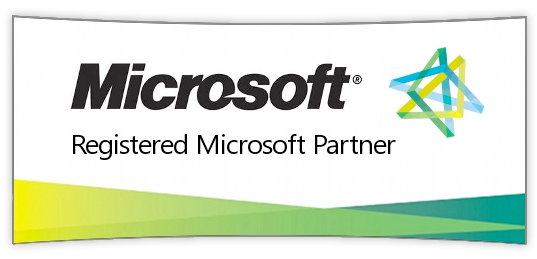Our team looks at current and emerging technologies we can expect to change the way we do business in 2021 and beyond.
As the seismic effects of Covid-19 rumbles around the globe, the role of emerging technology in innovation and adapting the way we run our businesses is being brought sharply in to focus like never before. Telemat Business IT Support looks ahead.
As the seismic effect of Covid -19 continues to be felt around the globe, technical innovations are changing the way businesses are run at a faster rate than ever before.
- We will see an increase in Contactless Interfaces and interactions.
Covid has meant that touch screen technology, with it’s potential to spread the virus quickly, has become a potential health hazard.
Facial, retina and other forms of virtual recognition including voice interface are now the preferred solutions when looking for safe, quick, and secure access to both financial transaction channels, data, and secure networks.
- There will be a continued push to strengthened digital infrastructure & remote working
If you are reading this, there is a good chance you are doing so from home or during a more limited time in a traditional office. While many people expect there will be a gradual return to fulltime office spaces, for much of 2021, most knowledge workers will continue to work remotely for all or most at work hours.
Services like Zoom and Microsoft Teams have jumped to the forefront of work-life and proved to be highly capable. Expect that new tech will develop in 2021 to make remote work more efficient and secure. There will be much focus on better enablement of home-based work, education, and even healthcare. Look to Business IT Support to keep you updated.
- We will see better monitoring using IoT and Big Data.
Town Wi-Fi and the emergence of LoRaWan have demonstrated the value of generating data monitoring human behaviour. It is now commonplace to track the flow of shoppers through town centres, to use IT to better understand parking habits as well as tracking more mundane issues such as when refuse bins need emptying.
A timely supply of data provides a way to capture activity and provide an evidence base from which to improve services and experiences in real-time whilst also offering operational and infrastructure cost savings.
- AI-enabled development set to make business life easier
Artificial intelligence described as ‘the simulation of human intelligence processes by machines, especially computer IT systems’ or getting machines to think like humans, is now being applied to business communications.
The amount of electronic data in emails, reports and trading information businesses get daily, makes time management and prioritising tasks difficult. Filtering data has become a focal point of software developers, to help busy business managers sift out the key actionable and impactful information.
AI is already with us; just look at Amazon’s Alexa and Apple’s Siri. Apple claim over half a billion people use Siri. That’s a lot of people talking to smart devices.
- The way we shop online and interact is becoming more sophisticated meaning all businesses will need to think again
Many businesses sell online, but Covid exposed weak online sales models and left many of those with no online offer without a route to market. The ‘new normal’ has meant a rethinking of online presence for many and a review of the logistical implications of trading virtually.
Literally, overnight remote meetings and sales presentations, virtual shopping, virtual workouts, and virtual tours have now become the ‘new normal’ forcing businesses in all sectors to rethink the way they operate and relook and review how they are supported through business IT support.
- Virtual events will look to capitalise on newly found income revenue streams
Whilst some face to face events in a post a Covid world will resume, many events such as conferences attended in person, may fall prey to obvious budget-saving measures with a knock-on effect to the hospitality sector.
However, the lessons learned from successful virtual events such as international sporting competitions may give rise to increased capacity in terms of interactive viewing and in-turn offer spin-off income opportunities.
- Decarbonisation technology such as grid automation and microgrids will help streamline energy sources and save on business running costs
Grid automation allows utility companies to achieve higher levels of control and analysis and move closer to decarbonisation. This offers opportunities to marry green power generation with digitalisation by adding sensors to equipment to gather system data.
Microgrids enables the creation of zones where energy is managed autonomously. University campuses, small towns and villages, industrial plants, and factories, are good examples of pioneering communities that have improved environmental performance and reduced costs.
- 5G network will increase processing speeds
As the underlying infrastructure improves across the country, 5G will become more prevalent. The next few years will see more 5G-enabled devices and 5G chipsets within devices in modems, and more operators building out 5G coverage.
5G will facilitate wider adoption of AI as one of the barriers to AI adoption has been limited processing speeds. AI applications will be able to receive and process data much faster with data transfer speeds 10 times faster than 4G.
- Electric vehicles, robots and the use of drones set to bring the future into today
When Amazon pioneered the development of drones to deliver online goods, eyebrows were raised. The pandemic has now nicely brought that innovation into focus.
Electric Vehicles continue to become increasingly capable IoT appliances. Electric vehicle availability has continued to increase in 2020, and it looks like it will continue to grow. While there may be no breakthroughs, we should expect that smart connected vehicles will continue to evolve in 2021.
While industry leaders had lofty visions of autonomous vehicles in the near-term, the optimism has been moderated. However, there will continue to be an evolutionary improvement in 2021 and beyond. Part of this improvement will come from a combination of improved algorithms, but also enhanced IoT sensors.
The Korea Tech Today magazine recently reported that Urban AirPort and Korean car maker Hyundai, has unveiled plans for the world first pop-up mobile airport in Coventry, due to be completed by November 2021. Called Air-One, it can be installed in days and will become the smallest airport ever. It has been designed with ultra-compact dimensions and can be implemented in towns and cities to allow electric air taxis and drones to land and charge their batteries.
A final thought:
There is certainly a lot to take in and leaves businesses owners asking; do we want to be ahead of the curve or in the wake of the ongoing revolution in business technology and business IT support?
For a FREE It review of your IT systems, contact us on 01239 712 345





